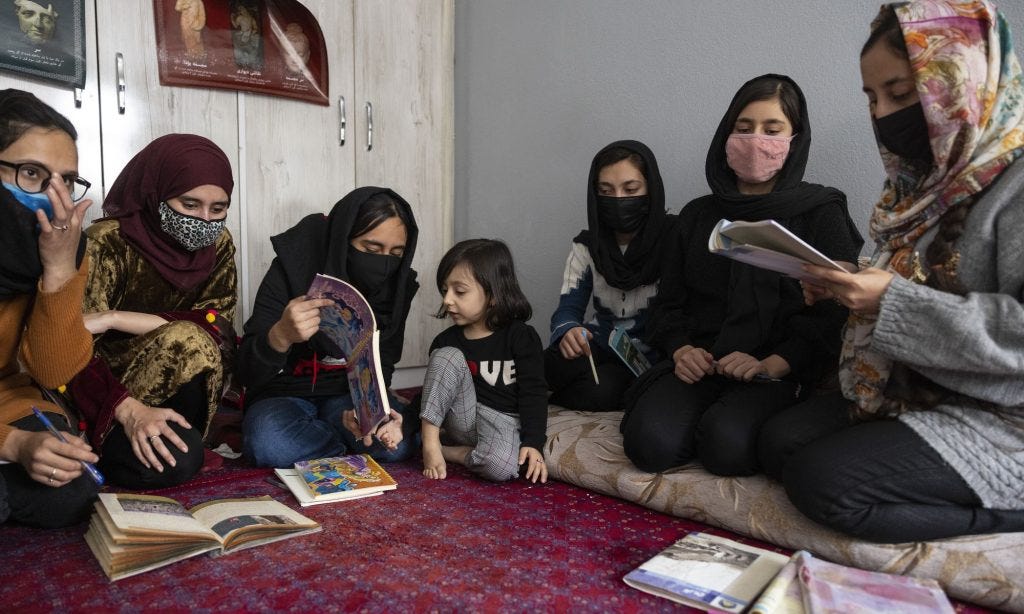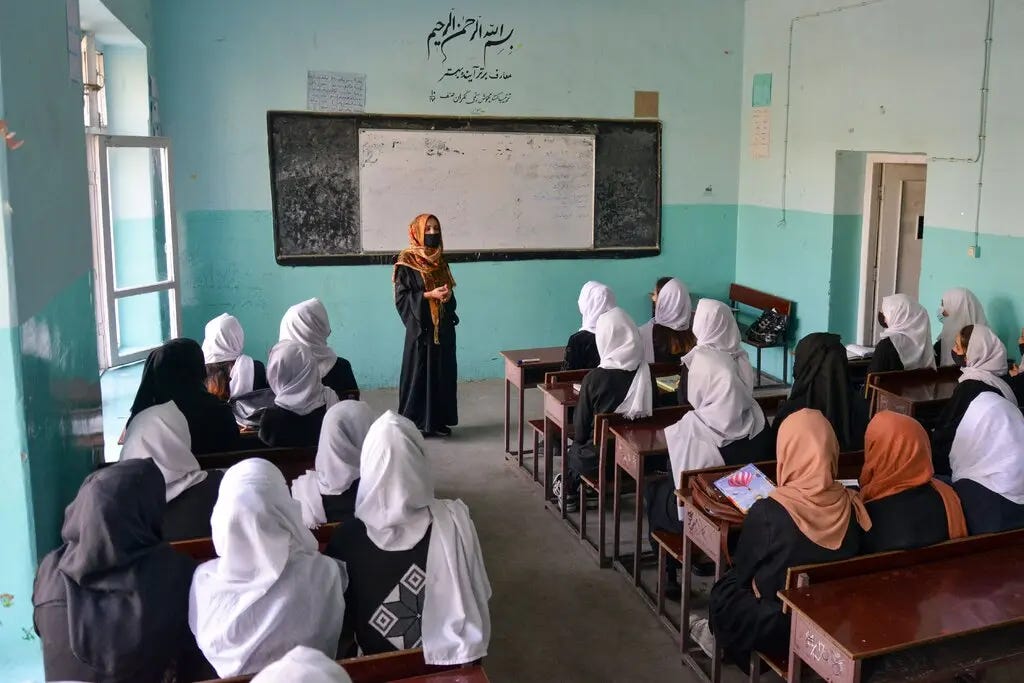Afghan translator: ‘I want to use my knowledge to free my people from the Taliban guns’
Khatera Haleem joined Ideas Beyond Borders to pursue her dream of a modern, free-thinking Afghanistan and use her knowledge to fight the Taliban.
Khatera Haleem was in a bad place last summer. After the Taliban seized Afghanistan on August 15, the 30-year-old teacher shut down. “I lost everything. “I was just sitting at home worrying about the future,” she says. Friends told her to read books and keep busy but despair consumed her. All she could do was take medication and sleep.
It was a stark contrast to the life she was living just weeks earlier. “Before The Taliban regime, I was busy and happy,” says Haleem, who holds a Masters in Life Sciences and is a certified doctor of veterinary medicine. Her days started early - she was at work by 8 am, then on to university, where she was completing her post-graduate studies. In the evening she worked as a freelance translator for education institutes.
It was hard work juggling university and multiple jobs, but she enjoyed it, and the income was vital support for her mother and two younger brothers. But within weeks of taking power, the Taliban decreed that all women should be banned from employment. The news came as a crushing blow to Haleem. “I was really disappointed and didn't have the energy to read or work or do anything,” she says.

Four months went by then a friend told her about a translation project. “He made me accept it,” she says. It was the right decision. Since joining the Ideas Beyond Borders translation team in Afghanistan she has reconnected with a long-held ambition to make information available to people in Pashto, her native language.
“As an undergraduate, I wasn’t fluent in English so whenever my supervisors gave me an assignment I struggled to find the necessary materials in Pashto.” She’s excited to be involved in a project that plans to change this. Haleem is part of the Ideas Beyond Borders House of Wisdom 2.0 program, which expanded to Afghanistan in October 2021 to provide people there with unbiased and unrestricted access to knowledge at a time of repression.
Since its launching, the project has translated over 1400 articles on critical thinking, science, and human rights into Pashto and Dari, Afghanistan’s most widely spoken languages. “The Taliban are against education and everything related to learning… I do this work because I dream of a modern, open-minded society and I’m prepared to struggle for this goal. I will never give up on this work, no matter what might happen,” Haleem says.
Over 72 translators now work for the program, which provides assistance on multiple levels, including financial support, security, immigration and travel advice, and letters of recommendation to secure visas and employment. “There are still many people in Afghanistan willing to work under extraordinary circumstances to make knowledge accessible to their fellow citizens, and Ideas Beyond Borders gives them the platform to do this safely,” says Faisal Al Mutar, President and Founder of Ideas Beyond Borders.
Afghans Spreading Knowledge Despite The Odds
Haleem dedicates around three hours a day to translation, covering 10 articles a month. Usually, she works at night in her bedroom, sometimes with music, but she prefers complete silence when the content presents a challenge. “I love this work,” she says, quoting Nelson Mandela’s famous dictum: ‘Education is the most powerful weapon which you can use to change the world.’

This is the goal Haleem plans to pursue by working with IBB’s translator program in Afghanistan. “I want to use my knowledge against the Taliban’s guns,” she says. “I dream of a peaceful, development, and modern country and as an Afghan citizen I will work hard to achieve this dream.”


